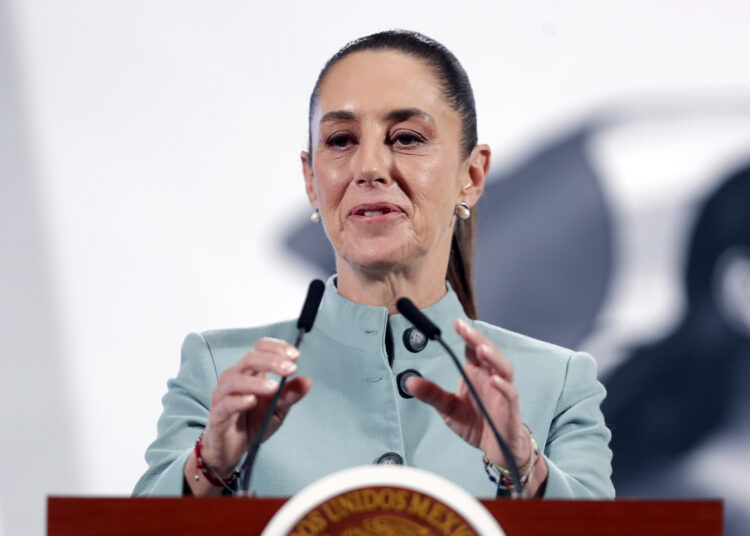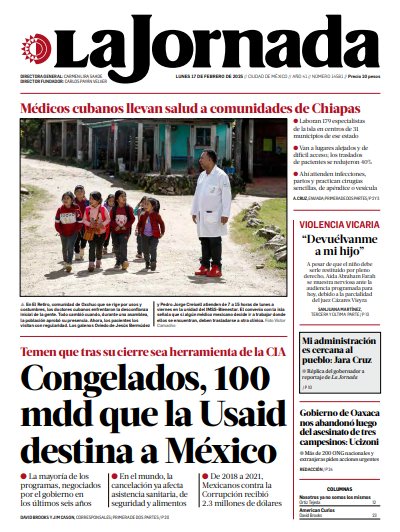The Mexican president, Claudia Sheinbaum, defended this Tuesday “opening the door” to doctors from Cuba and other countries in the Mexican public health system, as her predecessor, Andrés Manuel López Obrador (2018-2024), did to address the shortage of health personnel.
“You get to the current moment and you say: Mexico needs more hospitals, more health centers, but for that, it needs more doctors,” explained the president, highlighting the existence of four-, five- and six-year specialties, during her usual morning conference.
“While you train your specialists — what did the Mexican government do and we continue to do? — the door is opened to other nationalities who want to come, resident specialists, to our country; among them, to Cuban doctors,” she explained.
The Mexican president responded to questions about the arrival of 179 Cuban doctors to Chiapas, a state on the southern border of Mexico, to work at the Mexican Social Security Institute (IMSS) for Welfare or “IMSS-Bienestar,” which serves people without health insurance.
The Cuban Embassy in Mexico notified in November of the arrival of 199 Cuban doctors to work in remote communities after an agreement signed last July during the López Obrador government by which 2,700 doctors will travel from the island to Mexico.
The government justifies the hiring because Mexico has 2.4 doctors per thousand inhabitants, higher than the average of 2 per thousand in Latin America, but lower than the average of 3.5 of the Organization for Economic Cooperation and Development (OECD), according to the National Institute of Statistics and Geography (INEGI).
Sheinbaum now argued that “specialist doctors stopped being trained in Mexico due to a government decision” in the “neoliberal period” because the number of students enrolled in universities to study medicine was reduced.
The president asserted that the training of resident doctors in Mexico has already more than tripled, going from 5,999 new ones in 2011 to 18,799 in 2025.
Therefore, she maintained that Cuban doctors will serve to fill the temporary gap.
“In the meantime, what are we doing? What we should have always done and should never have closed, which is to train specialist doctors in Mexico,” she indicated.
An article published the day before by the newspaper La Jornada, gives an account of the care provided by Cuban doctors in Chiapas.
“Wherever they work, they have made a difference due to their willingness to care for patients, even doing more than they should, regardless of where they are. This is acknowledged by their colleagues in the medical units and the state authorities of IMSS-Bienestar,” the newspaper explained.
The deficient technical means, the population dispersion, and the difficulty of access to the communities are the main conditions that Cuban doctors encounter in this state in southern Mexico. “This is why, it is understood, in part, the lack of willingness of Mexican general practitioners and specialists to work in these places,” says the newspaper.
Regarding the conditions of the hiring of Cuban specialists, La Jornada states that “they receive maintenance for their personal expenses and their families are given the salary of their position in their country of origin. The contracts are annual and each one decides if they want to continue.”
EFE/OnCuba











